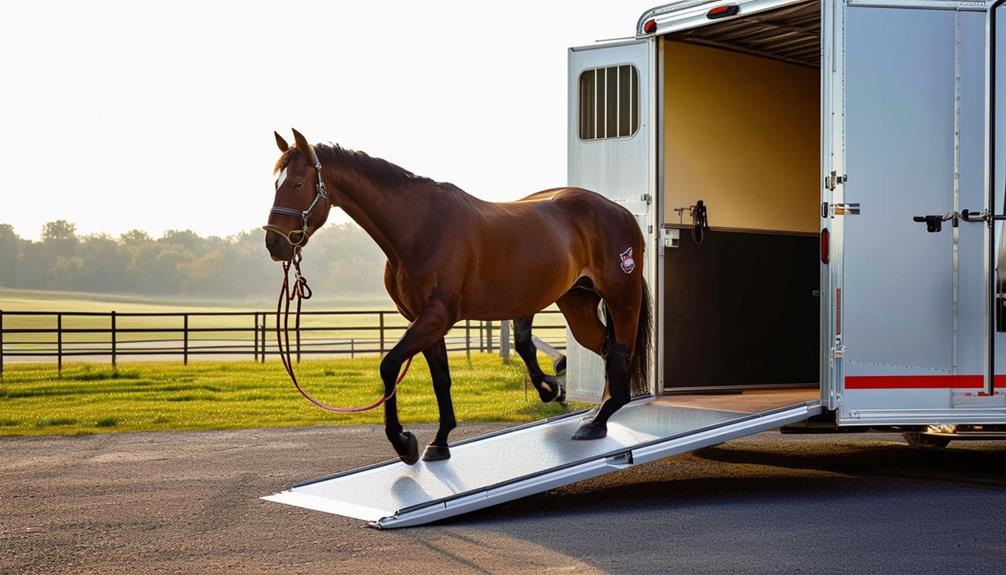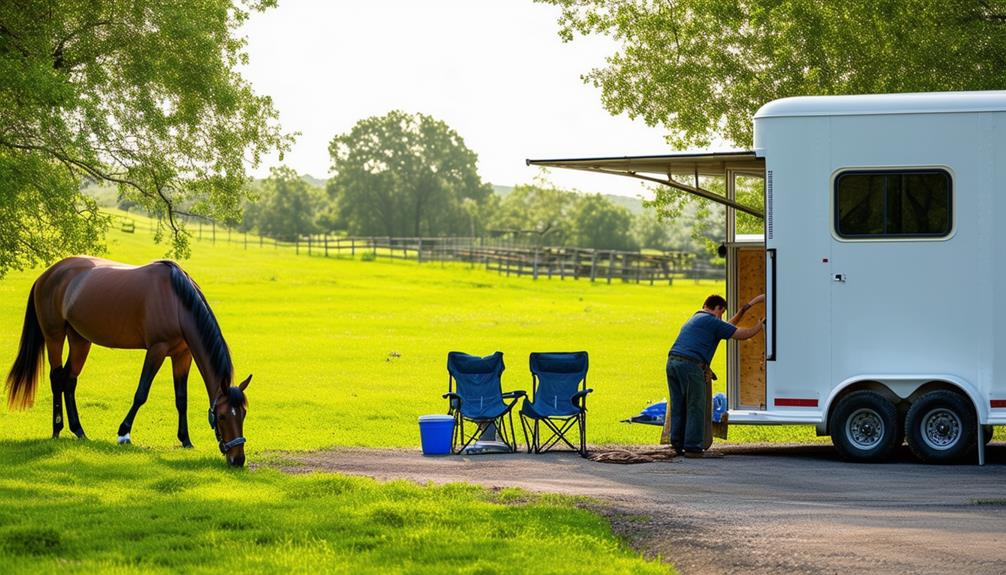Did you know that nearly 60% of horse owners travel with their horses for various reasons, such as competitions, trail rides, or relocation? Ensuring your horse is adequately prepared for long hauls is crucial for their well-being and performance. From loading techniques to post-haul recovery plans, each step plays a vital role in making the journey comfortable and safe for your equine companion. Let's explore some essential tips to help you navigate the intricacies of preparing your horse for long journeys.
Proper Loading Techniques

Ensure your horse is calm and cooperative before beginning the loading process for a long haul. Loading strategies play a crucial role in ensuring a safe and stress-free journey for your equine companion. Start by selecting the appropriate equipment such as a well-fitted halter and lead rope, ensuring they're in good condition before use. Familiarize your horse with the trailer gradually, allowing them to investigate and get comfortable with the new environment. Use positive reinforcement techniques like treats or praise to encourage your horse to step into the trailer willingly.
When loading, consider the layout of the trailer. Opt for a well-ventilated and well-lit trailer to make the space inviting for your horse. Position yourself at a spot where you can gently guide your horse forward without causing unnecessary stress. Practice loading and unloading your horse multiple times before the actual trip to build confidence and routine.
Hydration and Nutrition
Keeping your horse properly hydrated and well-nourished is essential for maintaining their health and well-being during long hauls. Hydration tips are crucial. Encourage your horse to drink water frequently, offering it every few hours during breaks. To ensure adequate hydration, monitor your horse's water intake and aim for them to drink 5-10 gallons of water daily. Electrolytes can be added to their water or feed to help maintain hydration levels during travel.
When it comes to the feeding schedule, sticking to your horse's regular routine as much as possible is key. Provide high-quality hay throughout the journey, and consider offering small amounts of grain to keep their energy levels up. It's best to feed your horse a few hours before the trip to prevent any digestive issues while on the road. During stops, offer hay to keep their digestive system functioning and to provide a sense of comfort.
Adequate Rest and Breaks

Throughout a long haul journey with your horse, strategically planning adequate rest and breaks is crucial to ensure their well-being and stamina.
